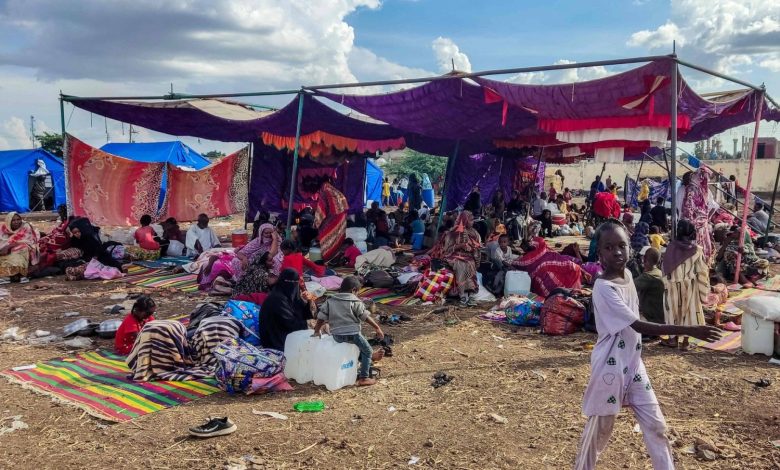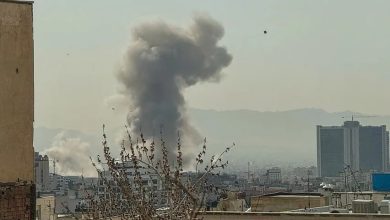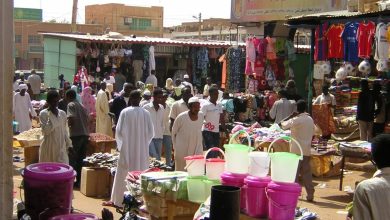Reports
German Government Plans to Support a Project for the Integration of Sudanese Refugees in Chad

Sudan Events – Agencies
Five people were killed and others wounded by gunfire in a village in the Gezira state (central Sudan) following an attack by members of the “Rapid Support Forces” on Wednesday. This attack adds to the 40 people killed in other towns in the state, which has been experiencing violence for nearly a month in central Sudan, a region devastated by the ongoing war for the past year and a half, according to medical and local sources in the state on Wednesday.
For the second consecutive day, members of the “Rapid Support Forces” attacked the village of “Al-Takina” (central Gezira), using heavy weapons, leaving five dead. The Sudanese Air Force then carried out airstrikes to stop their advance into the region. Earlier, the “Gezira Conference,” an entity monitoring war violations, warned of an impending massacre planned by the “Rapid Support Forces” targeting the locals of the region, which is hosting a large number of displaced persons fleeing from neighboring villages. Residents of Al-Takina reported that armed locals fought back against the force trying to infiltrate from the western neighborhood.
RSF: A Conspiracy to Create a Clash with Civilians
For its part, the “Rapid Support Forces” said it was monitoring a conspiracy led by elements of the former regime (the Islamic Movement) and what it calls the “Burhan Militias” that are mobilizing citizens and arming them in Gezira state to “create a confrontation between our forces and civilians.” In a statement from its spokesperson, Fathi Qureshi, it added that there are documented videos on social media showing a “plan to arm civilians in Gezira villages, revealing the remnants (elements of the former regime) and some deceived individuals from Al-Takina and other villages, threatening to attack our forces.”
The RSF called on the villagers to distance themselves from the “remnants’ scheme and attempts to drag citizens into fighting under the guise of popular resistance,” stressing that it would not hesitate to deal firmly with the armed groups and “the remnants’ battalions of the Islamic Movement.”
In this context, a doctor at the Wad Rowah hospital north of the attacked village of Wad Ashib confirmed to Agence France-Presse the death of 40 people, noting that the 40 victims were directly shot. The doctor requested anonymity for safety reasons, as medical teams have been targeted in attacks. Witnesses in Wad Ashib said that the “Rapid Support Forces,” which have been at war with the Sudanese army since mid-April 2023, launched their attack on the village on Tuesday evening, located 100 kilometers north of the state capital Wad Madani. A witness, in a phone call with the agency, said that “the attack resumed on Wednesday morning,” explaining that the attackers were committing “looting acts.”
UN Concerned
The recent attack is part of a series of attacks carried out by the “Rapid Support Forces” over the past month on villages in Gezira state, following the defection of a senior leader who joined the army in October. Since that time, the UN has documented the displacement of more than 340,000 people from the state’s population, a major agricultural region that used to be Sudan’s breadbasket. UN spokesperson Stéphane Dujarric warned on Friday that the outbreak of violence there “puts the lives of tens of thousands of people at risk.”
In recent weeks, villages in eastern Gezira governorate have been completely besieged, causing a humanitarian disaster, according to the UN, eyewitnesses, and human rights groups. In the village of Al-Hilaliya, residents are no longer able to obtain basic necessities, and dozens have fallen ill. Many displaced people have reached neighboring states after “walking for several days… with nothing but the clothes on their backs,” according to Dujarric on Friday. Even in areas that have escaped the fighting, hundreds of thousands of displaced people are facing epidemics, including cholera and imminent famine, in the absence of proper shelter or medical care. Dujarric stated, “They are forced to sleep outdoors, including children, women, the elderly, and the sick.”
80% of Health Facilities Closed
The UN and health officials estimate that the conflict has caused the closure of 80% of health facilities in the affected areas. The UN says that Sudan is currently facing one of the worst humanitarian crises in recent history, with 26 million people suffering from severe hunger.
Sudanese Army Airstrikes on RSF Positions
On the other hand, Sudanese army warplanes launched a series of airstrikes on “Rapid Support Forces” positions east of the city of El Fasher, the capital of North Darfur state, according to local sources. A relative calm returned on Wednesday to El Fasher, which has been witnessing intense battles for weeks after the “Rapid Support Forces” advanced into the city’s center.
German Resettlement Project
In another development, German Minister for Development, Svenja Schulze, during her visit to Chad on Wednesday, announced that Berlin intends to support a project aimed at integrating Sudanese refugees into Chad. Over the next five years, the Chadian government plans to allocate 100,000 hectares of land for free, half of which will be given to refugee families and the other half to needy families in the host communities. One hectare will be allocated to each family.
The World Food Program is set to support these families to make the land usable. Schulze, during her visit to the Adre border crossing in eastern Chad, said, “Unfortunately, we must assume that most refugees will not be able to return to Sudan in the foreseeable future.” She added that humanitarian aid is not a permanent solution. “For this reason, this approach, which provides land to refugees and host communities and makes it usable again for fields and pastures, is a pioneering step, as those who own fertile land can provide for their needs themselves.” Janine Litmaier, the director of World Vision Germany, stated that about 250,000 refugees are currently living in difficult conditions in temporary, makeshift shelters in the Adre area alone. Litmaier added that many people are living under tarps stretched over tree trunks or poles.



